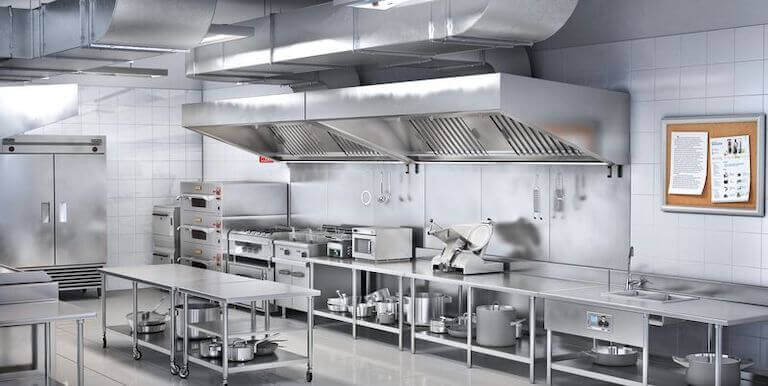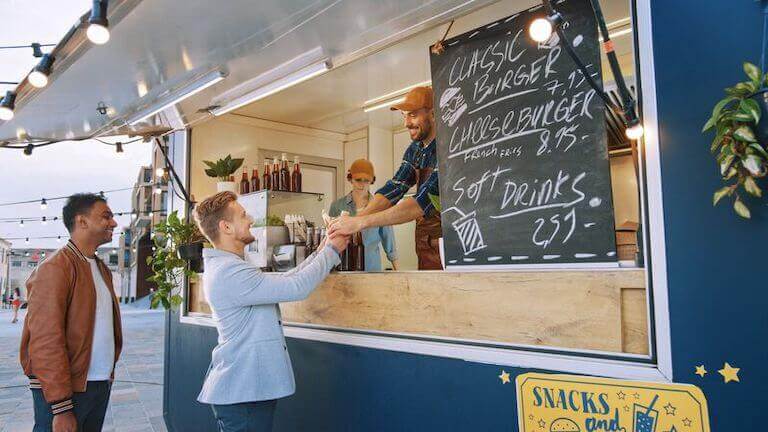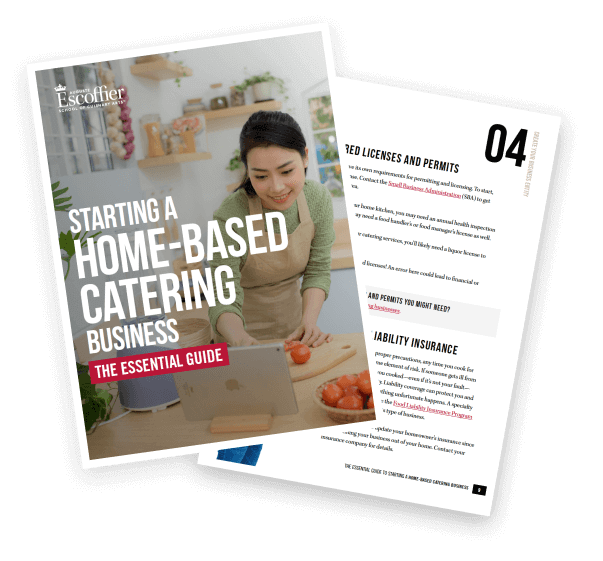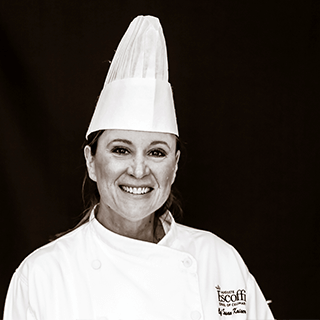The early stages of business development or expansion can be an exciting time, but also a challenge. Perhaps you’ve got a great idea for a food business, but you’re finding it difficult to come up with startup capital or find a suitable facility. And if you don’t want to go it alone, how do you find a place with business guidance or peer networking in addition to kitchen space?
A kitchen incubator could be an option.
The kitchen incubator—sometimes called incubator kitchen or food incubator—involves shared commercial kitchen space that’s typically rented by the hour or by the month. The idea appeals to a variety of small business owners and aspiring business owners, whether they’re startups honing their vision or more experienced entrepreneurs who are trying out a new idea and want to mitigate their financial risk.
Read on to find out more about how a kitchen incubator works.
What Is a Kitchen Incubator?
By definition, a kitchen incubator offers users a kitchen space as well as access to professional development and business advice—a reflection of the word “incubator” in its name. Kitchen incubators typically include access to packaging equipment as well.
Primary services include access to space and equipment; information about business planning, marketing/advertising, distribution, regulations, food safety, and access to capital; and business assistance, including technical assistance with certifications, product development assistance, and connections to buyers and consumers. Of course, your access to and the quality of these services is dependent on your continued paid membership and the expertise of an incubator’s staff. That can make a more formal education, like you could get from Escoffier, a more reliable route to gaining the skills and knowledge you need to run a business.
Kitchen incubators are different from ghost kitchens, which are shared kitchen facilities whose purpose is entirely devoted to space and equipment but not to business development. Ghost kitchens tend to focus on or appeal to businesses doing takeout and delivery orders, and may house multiple businesses or just one. These more established companies may not have as much use for the business development services an incubator can offer.
Incubators also differ from accelerators, which typically appeal to larger businesses and offer startup capital in return for future equity in a company.
In practice (and on Google), the term “kitchen incubator” is often blurred with other phrasing, used interchangeably with the terms shared-use kitchen, shared commercial kitchen, cloud kitchen, and commissary.
A true incubator kitchen is much more than just shared space, however, so if the idea appeals to you, make sure to perform your due diligence when researching a space.
Findings from January 2020 report: “U.S. Kitchen Incubators; An Industry Update”
A January 2020 industry report on U.S. kitchen incubators grouped them in the “shared use food facility” category, adding that kitchen incubators “offer business incubator services to provide startup food businesses with professional development and training.” The report surveyed shared kitchen operators in 2019 across the U.S.
- 82% of respondents to the survey said that supporting entrepreneurial success made up at least a part of their primary mission.
- 30% of respondents said that business incubation was a primary function of their facility.
- Incubated businesses have more than double the success rate compared to businesses without incubation after six years in operation.
- Three-quarters of respondents had less than 30 members or tenants, with a typical range between 10 and 19.
- 52% of facilities can accommodate between one and four users at a time, while 18% can accommodate between five and 10, and 20% can handle more than 25 at a time.
The curriculum includes training on business planning concepts, and you’ll receive feedback on your idea from an Escoffier instructor with a professional perspective on food startups and business operations.

A professional or commercial kitchen can provide space and equipment an aspiring entrepreneur might otherwise lack.
Kitchen Incubator Example: Hudson Kitchen
Djenaba Johnson-Jones opened Hudson Kitchen in Kearny, New Jersey, in 2019. The 8,000-square foot space boasts a commercial kitchen, storage, and co-working facility, and its website says Hudson Kitchen has generated $9 million in revenue and created 58 jobs.
Members pay a flat fee and are allowed short-term commitments of 6- or 12-month contracts. They have access to the communal kitchen, office and storage space, and dedicated food truck parking.
Hudson Kitchen also offers support to register with the FDA, USDA-Meat Inspection, and Organic Certification; 1:1 mentorship sessions; and discounted educational workshops. The food incubator also boasts access to Consumer Packaged Goods (CPG) industry providers and highlights the opportunity for members to work alongside other CPG teams.
Hudson Kitchen’s membership fees include $850 a month for a food truck membership; a Part-Time membership starting at $1,600 a month for nights and weekends access; and a VIP Access membership starting at $2,500 a month that offers access at any time and any day. Members reserve time slots for areas of the kitchen.
Who Uses a Kitchen Incubator?
A food incubator can appeal to a variety of businesses, most notably packaged food businesses and food trucks. These incubators can help mitigate the costs of a commercial kitchen facility and provide business owners with a space that meets legal standards and regulations. All food businesses need licenses and permits—even if you operate out of your home, you’d pursue a cottage food license—and incubator kitchens can help small food businesses understand and manage all that paperwork.

A food truck owner may need to do their prep work somewhere other than inside the truck.
The 2020 report on kitchen incubators says most tenants or members sell produce locally at farmer’s markets, small grocers, and community events, and that 52 percent also sell online. Ready-to-eat and baked goods are the most popular items.
Here’s how various businesses might use an incubator kitchen:
Food Truck Operator
In many states, a food truck operator may need to prep items ahead of time because of laws that prohibit them from doing prep inside their trucks. Even without the legal restrictions, a food truck is such a small space that it makes sense to prep as much as possible beforehand, in a larger area.
Food truck operators might also need the storage space and extra equipment that wouldn’t fit in the vehicle.

Get the Essential Guide to Starting a Food Truck
See how you can kickstart your food venture on wheels and explore how to manage expenses, craft a menu, and boost your visibility!
Packaged Food Business
A number of moving parts come into play in a packaged food business, from the culinary side to packaging, sales, and delivery.
Your specialty foods business might be larger than you can handle at home, and a food incubator might offer the commercial cooking and packaging equipment you desire, without the need to buy them yourself. Packaged food business might include baked goods, meals, or your own patented food product.
Personal chef
A personal chef provides food to multiple clients, and a commercial space with storage might be a solution to the space and equipment they need.
Access to an incubator might also provide networking opportunities to find new clients because you’re surrounded by a variety of other people also running food businesses.
Caterer
Similar to the challenges a personal chef or packaged food business might encounter, a caterer might outgrow their space at home in a hurry, but not yet be ready to afford a commercial space.
They might need the kitchen space and equipment, storage, and a place to park and load their vehicle. The community of other business owners might also present an opportunity to work together; a caterer might need additional help or might consider showcasing another business owner’s food.

Get the Guide to Starting a Home-Based Catering Business
Launching a home-based catering business can open the door to a fulfilling career. Grasp the fundamentals to start, from licenses and permits to essential marketing strategies.
Bakery Owner
It can be daunting to open in a physical location, with startup costs ranging from $50,000 to six figures. The bakery equipment alone can run $25,000.
A kitchen incubator might be a good way to test ideas and recipes without the long-term capital investment. And packaging equipment could come in handy here as well.
Online Business
A shared commercial space might work well for someone selling food products online who needs equipment, space, and packaging materials. Mentorship and networking can potentially be beneficial for a style of business in which people often go solo and might benefit from interactions they wouldn’t otherwise encounter.
How Do You Find and Use a Kitchen Incubator?
Because there is no single organization or entity that oversees kitchen incubators, your first step is likely an online search to find out what your state offers and to get educated about regulations. You can also ask around. The Agricultural Marketing Service within the USDA reports that 45 percent of participants they surveyed found shared kitchens through word of mouth.
A search for “food incubators” plus your state can be a good start. For example, a search for food incubators in Colorado shows a number of results, including Comal in Denver, a small incubator that focuses on supporting immigrant and refugee women, and Salad Ground Kitchens, a larger organization that operates three commercial kitchens in the Boulder and Longmont areas.
The USDA offers a pdf titled, “Things to Consider When Deciding to Use a Shared Kitchen,” and the Association of Food and Drug Officials website has a page on Incubator Kitchens Laws and Guidance.
Some other considerations:
- Spend time reading through the information regarding available spaces, and be sure you understand local, state, and federal laws and regulations about food safety requirements related to your business. Also review any mission statements to understand the kitchen incubator’s intended clientele and basics, like whether it’s a for-profit or nonprofit entity.
- Take a tour of the space and meet the owners.
- Think about your goals. Do you need business guidance or just a kitchen?
- Review your business plan and factor in your time and expenses.
- Fill out any required applications and/or other documents. Many or most incubators have an application process, and they may require you to carry insurance. Salad Ground Kitchens requires users to complete a food safety course as well.
- Get your ingredients and materials together and start creating!
Find Out More About Starting a Food Business
It’s simultaneously exciting and nerve-wracking to start or expand a business, but you don’t have to go it alone. Escoffier’s online Food Entrepreneurship programs can provide you with the skills and experience you may need to prepare for careers starting or running small food businesses.
Contact us today to discover more about our offerings and how you can build your knowledge of industry best practices in a flexible, interactive learning environment!
WANT TO KNOW MORE ABOUT FOOD ENTREPRENEURSHIP? READ THESE NEXT:
- The Ultimate Guide to Starting a Home-Based Catering Business
- 5 Skills Every Food Entrepreneur Should Have
- Is Culinary School a Trade School?
**”Figures included in this article are for informational purposes only and are estimates based on industry trends or a range of costs/expenses. Please research costs for your geographic location and individual situation.”
***Auguste Escoffier School of Culinary Arts does not provide legal advice. Always consult with an attorney before creating a new business entity!





